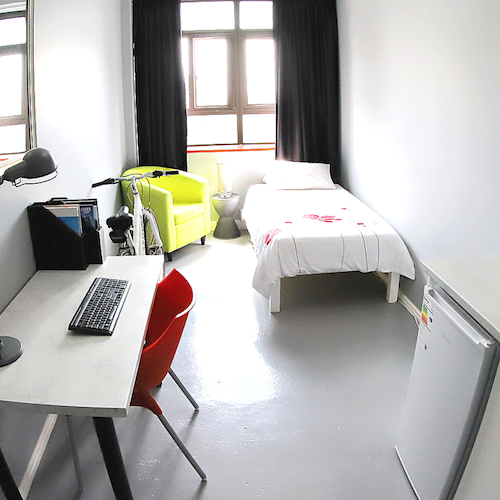The Supreme Court of Appeal (SCA) ruled on Monday that students can be evicted from university-provided accommodation if they refuse to leave, because they would have a home elsewhere.
The court found on appeal that student accommodation is meant to be temporary to help them get their education, and when they have completed their studies, they must move out for incoming students to get the benefit.
This comes after an application for leave to appeal a ruling made by the Western Cape High Court in favour of 90 students who opposed their evictions from New Market Junction, owned by Stay at South Point properties.
The Cape Peninsula University of Technology (CPUT) in Cape Town contracted Stay at South Point Properties to provide accommodation for the students, and during the Covid-19 pandemic, the students refused to vacate when their exams finished at the end of 2020, ignoring notices to leave.
Eleven students were allowed to remain in their accommodation for the 2021 academic year, but they were asked to move out to alternative accommodation provided by the property company for maintenance and cleaning at the main site. This group also refused to leave.
The property company had security guards remove them on 12 January 2021. The occupants resisted. The property company asked the Western Cape High Court for an eviction order, which was refused because it was not brought under the Prevention of Illegal Eviction from and Unlawful Occupation of Land Act (PIE).
The property company appealed to the SCA, arguing that PIE would not apply in this case because student residences are not the students’ permanent home. They came from a home to go to university, and if they were evicted, they would have a home to go to.
All of the occupants have since left, but the parties agreed that the matter should be settled in law anyway, given the “recurring controversy” around accommodation at CPUT.
ALSO READ: Reading crisis: ‘No national plan to catch up learning losses’
In the judgment, the SCA explained that PIE is in line with Section 26 of the Constitution and provides that no one should be evicted from their homes without an order of court made after considering all relevant circumstances.
The bench found that PIE usually involves the occupation of land, but it is also meant to protect against homelessness.
The court found that if the occupation of land does not constitute the home of an occupier, PIE does not apply and if they can’t show they will be rendered homeless, the protection of S26 does not apply.
The judges said the students come from homes to study at the university, and unless otherwise shown, student accommodation does not displace them or replace the homes they came from.
“And hence, logically, the respondents have homes other than the residence. There is then no basis to seek the protection of PIE. Eviction does not render the students homeless,” the court found.
They are intended to stay in the accommodation for a “finite time” to help them study at the university, and their student accommodation is meant to be temporary and transitory.
“Students who are assisted by CPUT with accommodation are well aware that this valuable benefit is of limited duration,” the judges said.
“Those who are fortunate enough to benefit from accommodation provided by CPUT know full well that each and every year, new students come to the university who legitimately look to the university for the very assistance that the respondents enjoyed.
“Equity requires that those who have had the benefit of accommodation should yield to those who have not. And nothing about the position of the respondents suggests that this equitable principle should not continue to apply.
“It [student accommodation] is a residence, of limited duration, for a specific purpose, that is time-bound by the academic year, and that is, for important reasons, subject to rotation.”
The court ruled that PIE does not apply, and the Western Cape High Court’s refusal to grant the eviction order was wrong, so the appeal must be upheld.
However, there is no order for eviction because the respondents have already left.
News24


